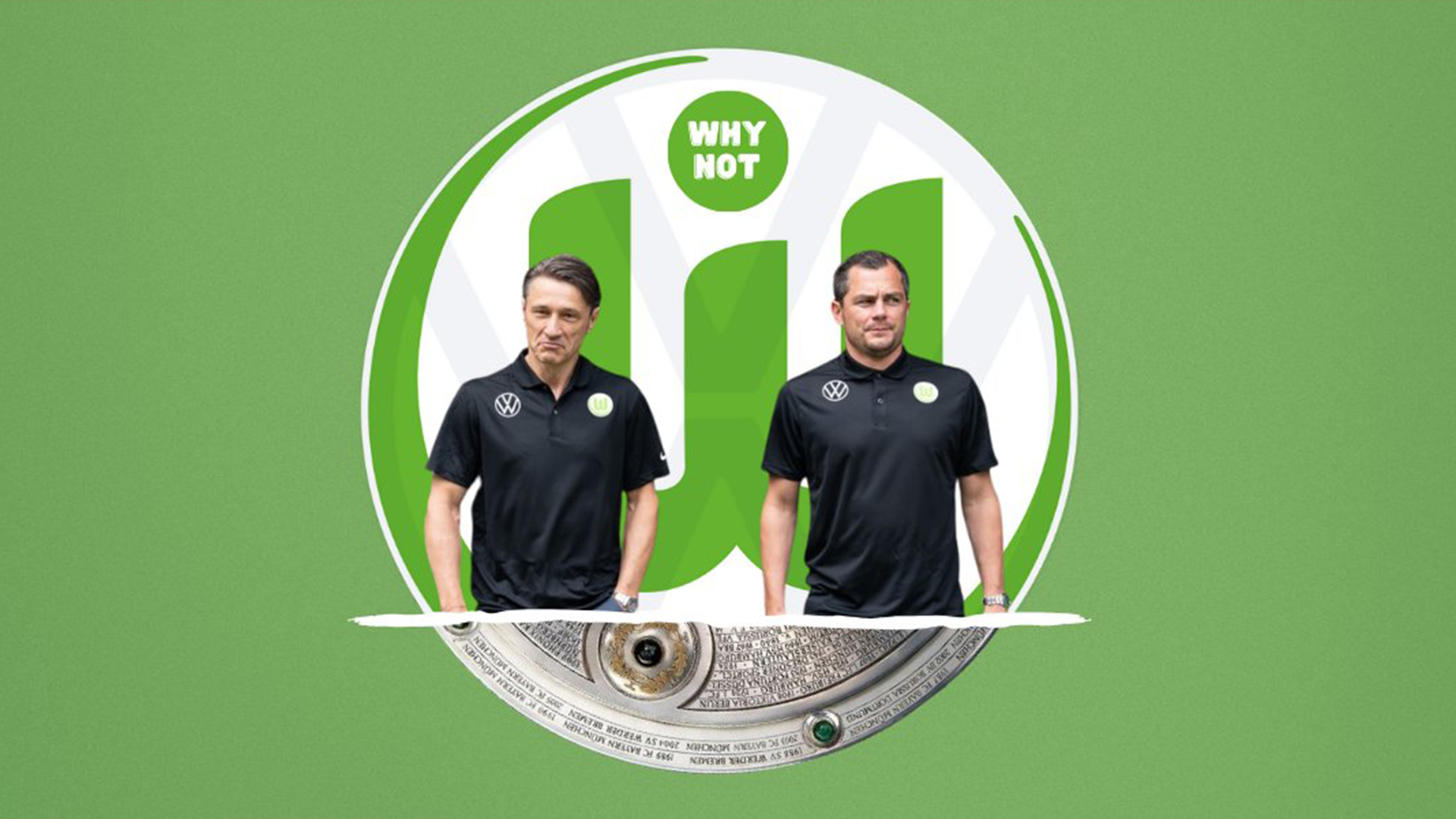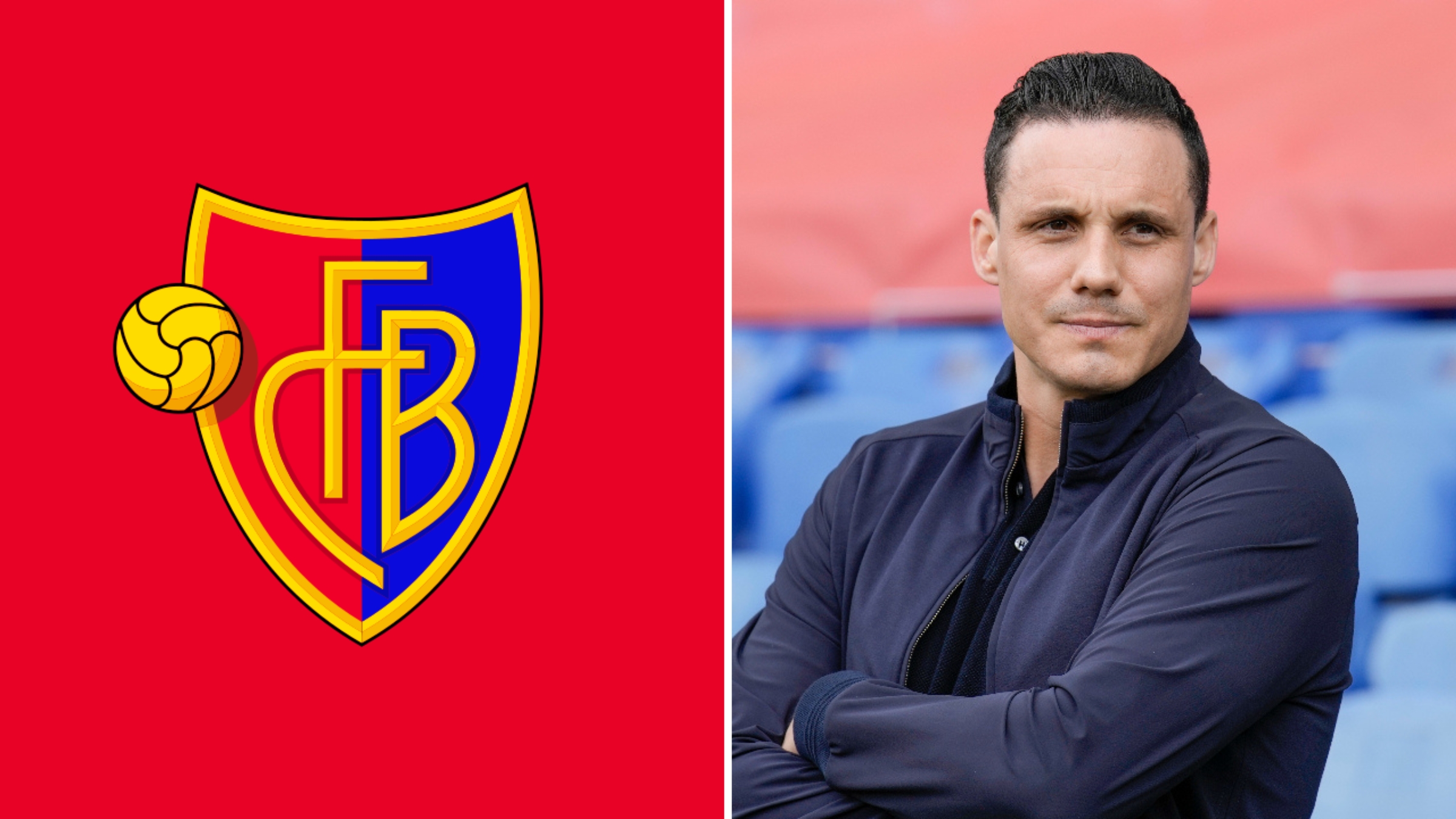“Evolution, not revolution” – VfL Wolfsburg’s Search for Identity
Things are rarely boring at VfL Wolfsburg, a club that has experienced the highest of highs—pipping Bayern to the Bundesliga title in 2009 and winning the DFB-Pokal in 2015—and some tumultuous lows—battling relegation in 2018 and as recently as last season. Now on their fourth permanent head coach in three years, die Wölfe seem to have, at last, found some semblance of stability under Niko Kovač. Wolfsburg’s transformation is, however, not complete yet, with the club recently unveiling a new management regime.
To understand what the future may hold for the Volkswagen-owned side, we must look to the recent past. This will help us to illuminate Wolfsburg’s ongoing search for a clear identity as a club and within the larger context of German football. Having been in a transitional period for a couple of years, they appear, on the face of it, to be now on the verge of the next step in their development. Whether this next phase will be progression or regression to the anarchy of the past is in the hands of the fresh-faced duumvirate of managing director Marcel Schäfer and sporting director Sebastian Schindzielorz, as well as coach Kovač, of course.
In the spring of 2017, just two years after their cup triumph and finishing as runners-up to Bayern, Wolfsburg were facing off against Eintracht Braunschweig in the Bundesliga relegation playoff following an exodus of star power the previous two transfer windows. They survived, but the following season would be no different, this time defeating Holstein Kiel in the Relegationsspiel. Something had to change—and it did. Jörg Schmadtke was hired to oversee sporting matters as managing director, while recently retired Marcel Schäfer, one of the 2009 Bundesliga champions, returned to the club as sporting director.
On the pitch, the new signing of Wout Weghorst proved to be an instant hit, with the Dutchman finding the net 17 times in the league as Bruno Labbadia’s side completed an impressive turnaround, ultimately finishing in 6th. Labbadia, however, would not renew his contract at the end of the season. With the hire of up-and-coming coach Oliver Glasner, who had managed to turn second-tier LASK Linz into a powerhouse of Austrian football in just four seasons, a new era seemed to dawn. In terms of player recruitment, Wolfsburg’s gaze also shifted to the Alpine countries: Xaver Schlager from RB Salzburg and Kevin Mbabu from Young Boys arrived for sizeable sums, as did Schlager’s erstwhile teammate Marin Pongračić, joining in January 2020.
Despite slipping down a spot compared to the previous season in Glasner’s inaugural year in charge, there was much to be excited about, and this excitement proved to be well-founded when Wolfsburg qualified for the Champions League by finishing fourth in 20/21 thanks to 20 goals from Weghorst; in fact, had it not been for a late-season slump, they could have finished as high as third. Press-resistant midfield dynamo Schlager and right-back Mbabu were mainstays in the side and the nominally defensive summer reinforcements, Ridle Baku and Maxence Lacroix, were ideal components in Glasner’s aggressive system, indicating that the recruitment department was doing excellent work.
But the dawn of a new era ultimately proved to be a false one. Under Glasner, it appeared as though Wolfsburg had finally found an identity as an exciting, high-intensity but defensively stout side that could take the game to anyone. Beneath the exhilarating public facade, however, cracks appeared as personal tensions between the coach and the club hierarchy, particularly Schmadtke, reached boiling point. In the end, it was the Austrian who was forced to yield. Another rebuild was on the cards, but Wolfsburg had now lost their way a bit.
The recruitment wasn’t as coherent as before. Schmadtke and Schäfer opportunistically and crudely sought to exploit player availability instead of focussing on addressing the immediate and real needs of the squad. Following the departure of Weghorst, they went down the Tottenham-Gareth Bale route of compensating for the loss of their superstar not necessarily with a like-for-like replacement but with sheer numbers. Scores of new attackers were brought in with scant regard for how they could possibly fit into an integrated system, while eyebrow-raising fees (by German standards) were blown on Luca Waldschmidt, Max Philipp and 33-year-old Max Kruse.
It wasn’t necessarily a case of signing bad players; on the contrary, several of the new arrivals, like the Nmecha brothers, Jonas Wind and Kevin Paredes, as well as defenders Sebastiaan Bornauw and Micky van de Ven (an exceedingly shrewd pick-up from the Dutch second tier) have, at times, impressed under Kovač this season and van de Ven has already earned himself a new contract. It was more a case of too many cooks spoiling the broth. Moreover, the instability wrought by the influx of new faces was exacerbated by coaching uncertainty. The Wolfsburg higher-ups can be forgiven for taking a gamble on the legendary player but inexperienced coach Mark van Bommel to be Glasner’s replacement. But hiring the uninspiring Florian Kohfeldt when things didn’t work out with the Dutchman was ill-advised and borderline inexcusable. Unsuprisingly, then, Wolfsburg found themselves in a relegation maelstrom.
Symptomatic of the anarchy that prevailed in recent years is that Wolfsburg repeatedly failed to relinquish their assets in time to turn a profit (with the exception of Weghorst). The sale of Schlager to Leipzig only covered the original outlay of €12m and Mbabu’s departure for €5.5m meant that the club made a loss of €3.7m on him. Lacroix, continually linked with a high-profile move away back when his value was skyrocketing under Glaser, remained with the Wolves and has since lost his automatic starting berth, meaning that his value, in turn, is now depreciating.
This is part of a bigger issue from a business point of view: Wolfsburg have not been profitable (solely speaking in terms of player recruitment) since 16/17. Last season, Wolfsburg spent €76.18m on transfers while merely raking in €22.7m in sales. Not even the reported Champions League revenue of €38m (not the only income stream, of course) was able to cover that loss of €53.48m.
While this is not necessarily an existential threat seeing as though the club is bankrolled by VW, it’s nonetheless far from ideal. In fact, since the start of the Schmadtke-Schäfer era in 18/19, only Bayern (-€154.40m) have accumulated a larger deficit on transfers than Wolfsburg (-€132.13m), with a significant gap to Hertha Berlin (-€65.86m) in third. This season, too, Wolfsburg have been operating at a loss in terms of personnel business, but on a much smaller scale than before (-€12.05m) and, crucially, the roster-building has been a bit more coordinated.
Though disjointed, the frantic, eye-catching spending of 21/22 actually helped lay the foundation for a much-needed restructuring and refreshing of the squad. By the end of last season, it was clear that Wolfsburg’s side consisted of a lot of dead weight, and the numerous new arrivals of the previous year now gave the club license to weed out veterans and those who were not performing anymore. Renato Steffen, John Anthony Brooks, Elvis Rexhbecaj and William all departed Wolfsburg for good in the summer. Kruse, Josip Brekalo and Jérôme Roussillon recently followed suit. Others, like Pongračić and Philipp, have been sent out on loan.
Brought in, besides new coach Kovač, were Mattias Svanberg from Bologna and Patrick Wimmer from relegated Bielefeld, with both proving excellent additions, while the likes of promising Jakub Kamiński, Kilian Fischer and Bartol Franjić have found consistent game time hard to come by, though the latter missed some time through injury. One trend that is clearly noticeable with Wolfsburg’s recruitment in recent years is that there is a marked focus on younger players; not youth or inexperience per se, but certainly athletes yet to hit their prime. Indeed, over the last two seasons, the only incomings 25 years or older (at the time of signing) were those three high-profile arrivals that failed to have the desired impact: Waldschmidt, Philipp and Kruse.
It scarcely needs mention that this is likely a reaction to the considerable transfer deficit that Wolfsburg have amassed over the last half-decade. Signing and developing younger players so that you can sell them at peak age for outsized prices is, in theory, a relatively risk-free way of remedying poor economic performance—as long as on-pitch performances don’t substantially suffer from the inexperience. However, if you look at the data, you will see that Wolfsburg have not necessarily been thrifty when it comes to their expenditure on promising talents. Suddenly, an ostensibly low-risk approach does become quite problematic.
Lukas Nmecha, Aster Vranckx, Jonas Wind, Kevin Paredes, Kamiński, Svanberg and Franjić joined for a sizeable combined outlay of €61.18m. Some, like Paredes and Svanberg, are showing signs of immense promise, but none of them, I would argue, are yet consistently performing at the level where a positive return on investment is guaranteed (Vranckx, for example, has barely featured on loan at AC Milan). Now if they are sold for €20-30m each at some point down the line, that would undeniably be brilliant business, but, as we saw earlier, that is not how Wolfsburg have operated in recent history, and it is this is by which the new sporting hierarchy will ultimately be judged. How they handle this immense amount of talent and achieve rentability will decide whether Wolfsburg progress or regress.
With Marcel Schäfer simply getting a promotion—rather than an outsider coming in to take charge of sporting matters—there likely won’t be any major upheaval in terms of Wolfsburg’s approach to recruitment. In fact, the official club website revealed as much, titling an interview with new sporting director Schindzielorz, “evolution not revolution.” Similarly, the new proposal by the German Football League (DFL) to make the existing exemptions from the celebrated 50+1 rule (Wolfsburg, Leverkusen) conform closer to the basic tenets of said regulation shouldn’t jeopardize VW’s funding of the club, despite its being a “partially painful compromise,” in the words of Leverkusen CEO Fernando Carro.
A more sustainable approach to their transfer dealings would, however, ease the burden on the owners and make a future transition fully away from their present privileged position—which should ultimately be the intent of the DFL—more palatable and feasible. Thus, continuing and refining the all-in policy on player development is the logical next step for a club that has been haemorrhaging money on transfers.
Regarding performances on the pitch, Wolfsburg boast a decent core of players that should allow them to mount a credible challenge for a European spot. Under Kovač, they have again found some of the defensive solidity that characterized them during the Glasner era, conceding the fourth-fewest goals in the Bundesliga and maintaining respectable Expected Goals Against (xGA) numbers from open play. Set pieces are a concern, though: Wolfsburg have racked up the highest non-penalty xGA from set plays in the league.
What they lack are more of the kind of floor-raising, consistent performers in the mould of captain Maximilian Arnold and a reliable, ceiling-raising goalscorer of the Wout Weghorst type. These deficiencies ultimately hamstring them in their bid of reaching their full potential, and the latter—though it has been several years and football is an unpredictable, turbulent business with many intangibles—illustrates just how badly Wolfsburg dropped the ball by not showing more patience with a young Victor Osimhen when they had him; he is the ideal sort of player that could take this team to the next level right now.
Case in point, Arnold, his midfield partner Yannick Gerhardt and right-back Ridle Baku lead the team in scoring this season. One ought not to be dazzled by the fact that die Wölfe have amassed the fifth-most goals in the league: they prodigiously padded their stats with an anomalous 6-0 demolition of Freiburg and a (somewhat less anomalous) 5-0 paddling of Hertha in January. Attackers Omar Marmoush, Lukas Nmecha and Jonas Wind—the latter two, it must be acknowledged, struck down by injury for some time—have generally not been as consistently productive as they potentially could be. Had Wolfsburg’s attack been deadlier, some of their many draws (seven—only Köln have tied more fixtures) could have been turned into much-needed wins.
This, in conjunction with their poor start to life under Kovač last summer, means that Wolfsburg find themselves outside of the European spots at the time of writing. The obvious objective for the immediate future, therefore, is to get in and qualify for an international competition. Beyond this, Wolfsburg’s new leadership needs to pursue a coherent business strategy that must include being more shrewd in the transfer market (spending less and smarter and selling at the right time) and having confidence in the long-term viability of the new emphasis on player nurturing, which can only be accomplished through coaching stability (having faith in Kovač, but also bringing in a suitable replacement should he leave or if things go awry).
In other words, they need to learn from the mistakes of the past. We can’t predict the future, but we can point to areas that need improving, and if they are improved, then Wolfsburg will be on a good path towards progress. How Marcel Schäfer ultimately handles his new role of directing both the men’s and Wolfsburg’s illustrious women’s team as managing director remains to be seen, but if he continues the work he started as sporting director, Wolfsburg might, before long, find their identity as a club that helps promising players maximize their potential.










